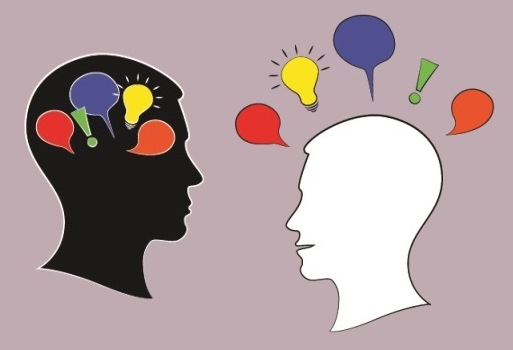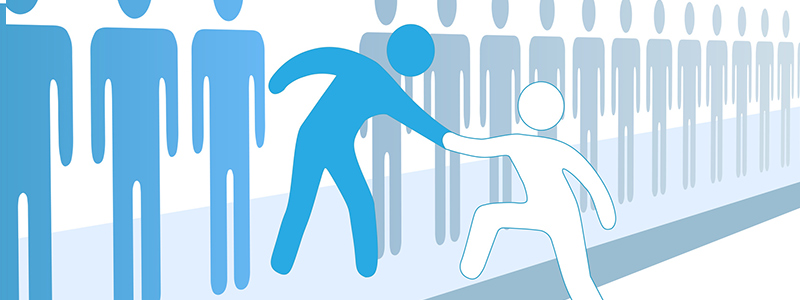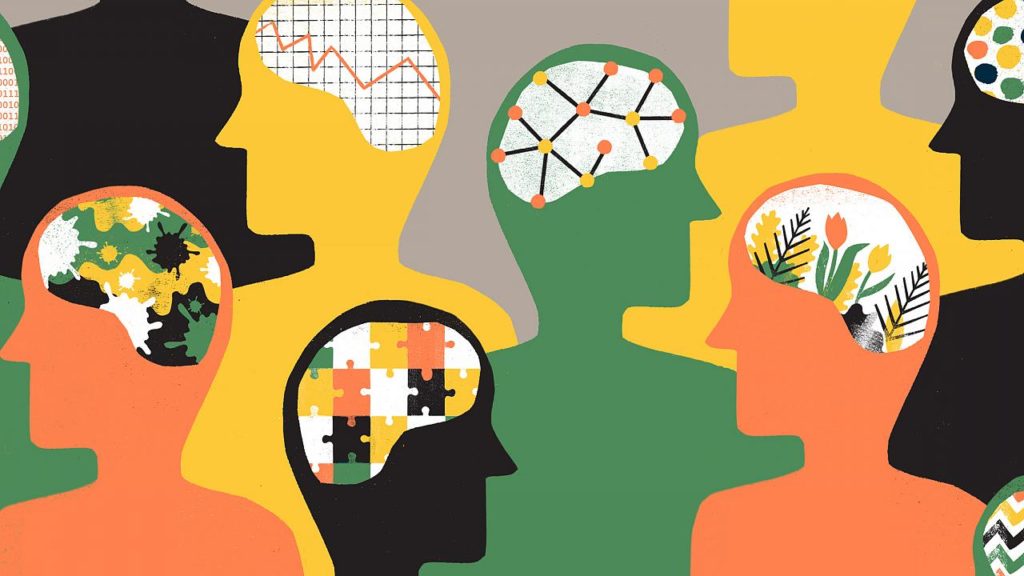Personality is a characteristic way of thinking, feeling, and behaving. Personality embraces moods, attitudes, and opinions and is most clearly expressed in interactions with other people. It includes behavioural characteristics, both inherent and acquired, that distinguish one person from another and that can be observed in people’s relations to the environment and to the social groups. Personality is the product of social interaction advanced communication in group life. In society every person has different traits such as skin, colour, height and weight. They have different types of personalities because individuals are not alike. Professional personality traits are easy to achieve but it requires dedication of understanding.

It refers to the habits, attitudes as well as physical traits of a person which are not same but have vary from group to group and society to society, everyone has personality, which may be good or bad, impressive or unimpressive. It develops during the process of socialization in a culture of a specific group or society. One cannot determine it of an individual exactly because it varies from culture to culture and time to time.
The Big Five Factors: The OCEAN Model
Each person has an idea of their own personality type, bubbly or reserved, sensitive or thick-skinned. Psychologists who try to tease out the science of who we are defining personality as individual differences in the way people tend to think, feel and behave.
There are many ways to measure personality, but psychologists have mostly given up on try dividing humanity neatly into types. Instead, they focus on personality traits.
The most widely accepted of these traits are the Big Five:
- Openness to experience
- Conscientiousness
- Extroversion
- Agreeableness
- Neuroticism
Openness to Experience
Openness to experience has been described as the depth and complexity of an individual’s mental life and experiences. It is also sometimes called intellect or imagination. Openness to experience concerns people’s willingness to try to new things, their ability to be vulnerable, and their capability to think outside the box.

Common traits related to openness to experience include:
- Imagination;
- Insightfulness;
- Varied interests;
- Originality;
- Daringness;
- Preference for variety;
- Cleverness;
- Creativity;
- Curiosity;
- Perceptiveness;
- Intellect;
- Complexity/depth.
People who are high in openness enjoy adventure. They’re curious and appreciate art, imagination and new things.
People low in openness is just the opposite: They prefer to stick to their habits, avoid new experiences and probably aren’t the most adventurous eaters. Changing personality is usually considered a tough process, but openness is a personality trait that’s been shown to be subject to change in adulthood.
Conscientiousness
Conscientiousness is a trait that can be described as the tendency to control impulses and act in socially acceptable ways, behaviours that facilitate goal-directed behaviour. Conscientious people excel in their ability to delay gratification, work within the rules, and plan and organize effectively. Professional personality traits are easy to achieve but it requires dedication of understanding. Professional personality traits are easy to achieve but it requires dedication of understanding.

Traits within the conscientiousness factor include:
- Persistence;
- Ambition;
- Thoroughness;
- Self-discipline;
- Consistency;
- Predictability;
- Control;
- Reliability;
- Resourcefulness;
- Hard work;
- Energy;
- Perseverance;
- Planning.
People who are conscientious are organized and have a strong sense of duty. They’re dependable, disciplined and achievement-focused. You won’t find conscientious types jetting off on round-the-world journeys with only a backpack; they’re planners.
People low in conscientiousness is more spontaneous and freewheeling. They may tend toward carelessness. Conscientiousness is a helpful trait to have, as it has been linked to achievement in school and on the job.
Extroversion
This factor has two familiar ends of its spectrum: extroversion and introversion. It concerns where an individual draws their energy from and how they interact with others. In general, extroverts draw energy from or recharge by interacting with others, while introverts get tired from interacting with others and replenish their energy with solitude.

- Socialness;
- Assertiveness;
- Merriness;
- Outgoing nature;
- Energy;
- Talkativeness;
- Ability to be articulate;
- Fun-loving nature;
- Tendency for affection;
- Friendliness;
- Social Confidence
Extroverts are chatty, sociable and draw energy from crowds. They tend to be assertive and cheerful in their social interactions.
Introverts, on the other hand, need plenty of alone time, perhaps because their brains process social interaction differently. Introversion is often confused with shyness, but the two aren’t the same. Shyness implies a fear of social interactions or an inability to function socially. Introverts can be perfectly charming at parties — they just prefer solo or small-group activities.
Agreeableness
This factor concerns how well people get along with others. While extroversion concerns sources of energy and the pursuit of interactions with others, agreeableness concerns one’s orientation to others. It is a construct that rests on how an individual generally interacts with others.

The following traits fall under the umbrella of agreeableness:
- Altruism;
- Trust;
- Modesty;
- Humbleness;
- Patience;
- Moderation;
- Tact;
- Politeness;
- Kindness;
- Loyalty
- Unselfishness;
- Helpfulness;
- Sensitivity;
- Amiability;
- Cheerfulness;
- Consideration.
Agreeableness measures the extent of a person’s warmth and kindness. The more agreeable someone is, the more likely they are to be trusting, helpful and compassionate. Professional personality traits are easy to achieve but it requires dedication of understanding.
Disagreeable people are cold and suspicious of others, and they’re less likely to cooperate.
Neuroticism
Neuroticism is not a factor of meanness or incompetence, but one of confidence and being comfortable in one’s own skin. It encompasses one’s emotional stability and general temper.

These traits are commonly associated with neuroticism:
- Awkwardness;
- Pessimism ;
- Moodiness;
- Jealousy;
- Testiness;
- Fear;
- Nervousness;
- Anxiety;
- Coward;
- Wariness;
- Self-criticism;
- Lack of confidence;
- Insecurity;
- Instability;
- Oversensitivity.
People with high in neuroticism are generally prone to anxiety, sadness, worry, and low self-esteem. They may be temperamental or easily angered, and they tend to be self-conscious and unsure of themselves.
Individuals who score on the low end of neuroticism are more likely to feel confident, sure of themselves, and adventurous. They may also be brave and unencumbered by worry or self-doubt.
Individual differences in personality are universal in that they are found in all human populations. The roots of individual differences are no doubt bedded in evolutionary history, selected because of their improved adaptively to conditions in the environment. The specific personality qualities of an individual, which lead to individual differences between people, are not based so much in evolution, however, but are the product of many developmental factors. It allows us to develop our interpersonal skills.
The developmental study of individual differences in personality provides a rich source of data for the researcher and practitioner alike to use in understanding and predicting behaviour. Without the study of individual differences, there could be no detailed analysis or explanation of why people often behave or develop very differently under seemingly equivalent environmental conditions. Understanding these differences and the development of these differences is fundamental not only to psychologists’ understanding of behaviour but also to parents, schoolteachers, social workers, policymakers, and anyone else who interact with mass of individuals. Because of universality and its implications for understanding behaviour, the study of individual differences is an essential part of any complete scientific study of behaviour.
Personality development is now also achieved by the help of communication or interaction with other people around us. It needs a perfect institution to learn as Engconvo

